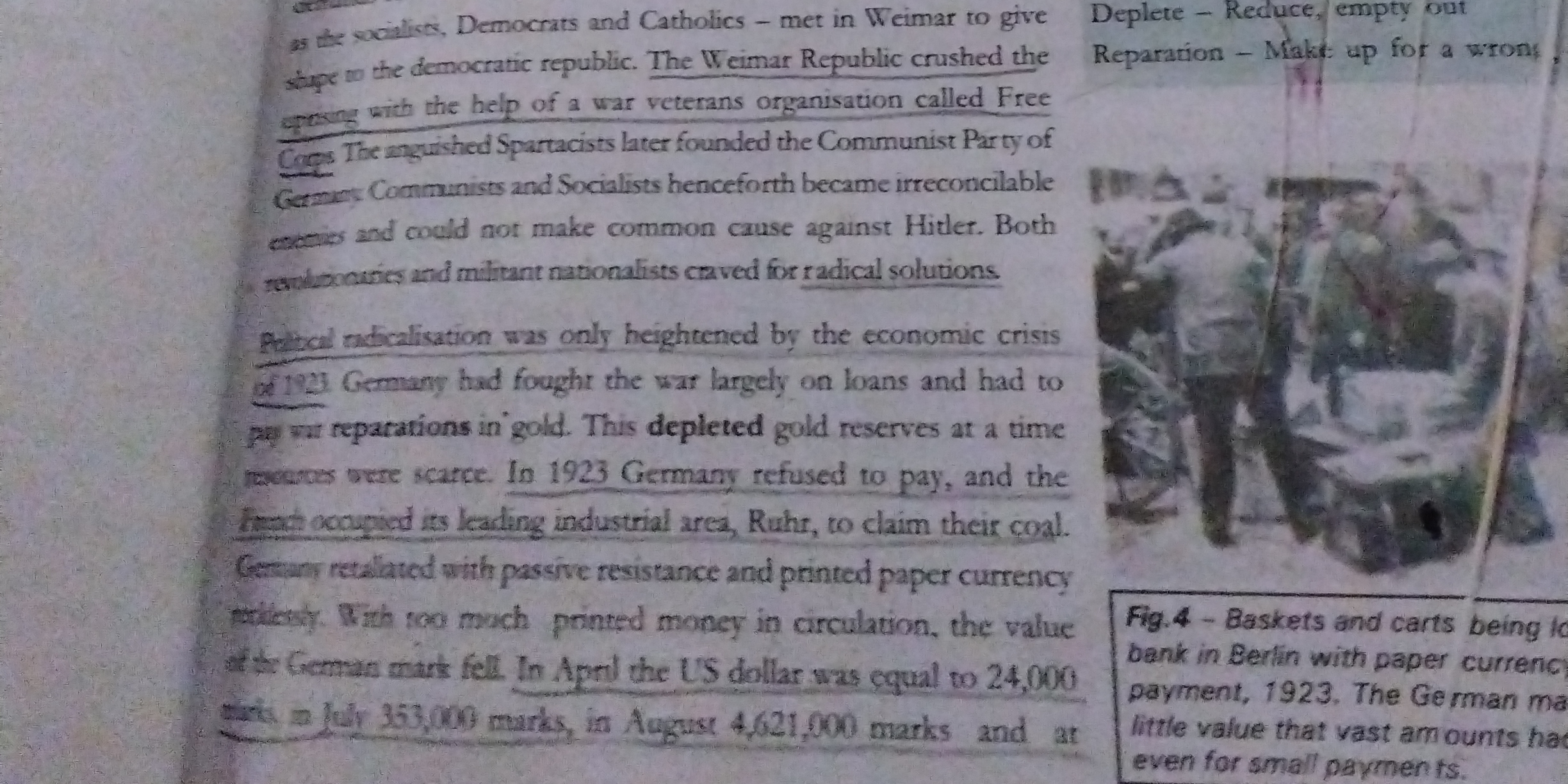What were the economic conditions in Germany in the early 1920s regarding reparations and the value of the currency?

Understand the Problem
The question involves understanding the economic conditions in Germany during the early 1920s, particularly in relation to reparations and the impact on gold reserves and currency value.
Answer
Germany faced hyperinflation and severe economic instability due to reparations and currency collapse in the early 1920s.
In the early 1920s, Germany faced severe economic challenges with hyperinflation drastically reducing the value of the German mark. Reparations payments, demanded in gold, further depleted resources, leading to economic instability and a political crisis.
Answer for screen readers
In the early 1920s, Germany faced severe economic challenges with hyperinflation drastically reducing the value of the German mark. Reparations payments, demanded in gold, further depleted resources, leading to economic instability and a political crisis.
More Information
Germany's hyperinflation was caused by excessive money printing to meet reparations obligations, significantly devaluing the currency. This led to economic turmoil and political unrest, facilitating the rise of radical political movements.
Tips
Overlooking the impact of reparations on the hyperinflation crisis can lead to misunderstanding the economic conditions.
Sources
- Germany - Weimar Republic, Hyperinflation, Reparations - Britannica - britannica.com
- Hyperinflation in the Weimar Republic | Description & Facts - britannica.com
- The Weimar Republic - Holocaust Encyclopedia - encyclopedia.ushmm.org
AI-generated content may contain errors. Please verify critical information